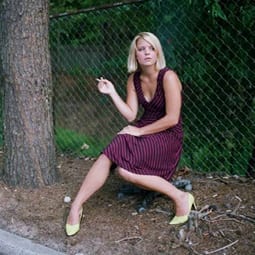As I write this, UK citizens head to the polls to decide upon the Brexit. Fear pulses through the air like a wifi signal, as immigrants and refugees are literal poster children for the “Leave” campaign.
Contemporaneously, members of the US Congress are sitting down, on the floor, to protest the legal loophole which allows potential terror suspects to buy semi-automatic weapons over the counter.
And that’s just today!
Zoom out on the last two weeks, and it’s been an onslaught of sickening violence. One horrible story after another has greeted the Summer of 2016 like a hostess with chronic halitosis.
In Orlando, Omar Mateen killed 49 people at a gay club. (With one of those aforementioned semi-automatic weapons.) The day before, a reality TV singer was killed by a deranged fan there too. In Chicago, a completely DIFFERENT reality TV singing sensation was also shot dead in the streets.
And to top it all off, a mentally unstable racist stabbed and shot Jo Cox, an English politician, in broad daylight in West Yorkshire.
She died, shortly after, at 41.
That last one really shook me, and when I learned she’d been born on the exact same day as my wife, it became harder to tune out the grief. We all suffer when a bright voice for tolerance is silenced, but I can’t stop thinking about her end.
Getting stabbed, and shot, repeatedly? Bleeding out, knowing you’ll never see your kids again? That you’ve lost everything at the hands of a sick-evil-hate-monger?
That has to be the worst way to go. But it happens all the time. Hackings and shootings. Bombings and land-mines.
All over the world. Every day.
Violence is hard-wired into human consciousness. It’s our fatal flaw, as a species, and one that just may prevent Homo Sapiens from ever discovering if planet Earth can actually support 20 Billion people.
War is systematized, organized violence. It has always been with us, and good luck predicting its demise. We might wish otherwise, but the human tendency to aggress is too embedded to excise.
Michael Christopher Brown’s excellent photo-book “Libyan Sugar,” recently published by Twin Palms, is perhaps the best attempt I’ve seen at depicting the human capital upon which War feeds.
The dead, and there are so many dead in this book, force you to stare at an uncomfortable reality: decomposing boys and men fertilize countless tales glorifying war down the ages. (The book opens with a passage from “Slaughterhouse Five” which implies as much.)
“Libyan Sugar” is as visceral as food poisoning, detailing the Magnum photographer’s journey into the heart of the Libyan War. (Thanks to his smart use of both imagery and text.) The latter utilizes contemporary communication techniques, as Skype chats, Facebook messages, and emails dominate, many employing the no-caps-and-chronically-misspelled style resonant of the 20 teens.
Brown is in regular contact with his parents, sister, and an Italian woman, Chiara, whom we assume is his girlfriend. They advise him on Libyan happenings gleaned from the Western news, wish him well, and worry often. He photographs almost entirely with an IPhone, which explains the square format, and also grounds the story-telling in the 21C.
He’s shot in the leg, once, and then, fatefully, is blown up in the infamous explosion that killed Tim Hetherington, his friend, and Chris Hondros, his colleague. Thankfully he survives, and clues us in on how things went down that day.
It makes it very personal, the loss, and terribly sad. Later, Brown returns to the scene of the bombing, looking for vestiges of their blood.
The pictures herein are graphic, made from February to December, 2011, as the world hoped for better things for Libya, and then discovered otherwise. We see Gaddafi’s dead head at some point, just one more corpse in a book filled with rotting flesh and kinetic energy.
The Arab Spring, and the Libyan War, remind us that our Western expectations have no bearing on the events on the ground in that vast desert. But beyond the geo-politics, the book also places us squarely inside the mind of a young photographer who felt the need to experience something, to live the story, and was lucky to make it out alive.
The book is taut, arresting, jarring. Choose your adjective. But you should look at it anyway, because just as Michael Christopher Brown’s time in Libya, 5 years ago, changed him forever, perhaps seeing the results might change you too.

